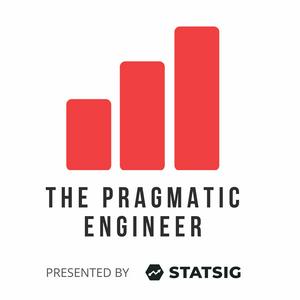Brought to You By:
• Statsig — The unified platform for flags, analytics, experiments, and more.
• Linear — The system for modern product development.
—
How have servers and the cloud evolved in the last 30 years, and what might be next? Bryan Cantrill was a distinguished engineer at Sun Microsystems during both the Dotcom Boom and the Dotcom Bust. Today, he is the co-founder and CTO of Oxide Computer, where he works on modern server infrastructure.
In this episode of The Pragmatic Engineer, Bryan joins me to break down how modern computing infrastructure evolved. We discuss why the Dotcom Bust produced deeper innovation than the Boom, how constraints shape better systems, and what the rise of the cloud changed and did not change about building reliable infrastructure.
Our conversation covers early web infrastructure at Sun, the emergence of AWS, Kubernetes and cloud neutrality, and the tradeoffs between renting cloud space and building your own. We also touch on the complexity of server-side software updates, experimenting with AI, the limits of large language models, and how engineering organizations scale without losing their values.
If you want a systems-level perspective on computing that connects past cycles to today’s engineering decisions, this episode offers a rare long-range view.
—
Timestamps
(00:00) Intro
(01:26) Computer science in the 1990s
(03:01) Sun and Cisco’s web dominance
(05:41) The Dotcom Boom
(10:26) From Boom to Bust
(15:32) The innovations of the Bust
(17:50) The open source shift
(22:00) Oracle moves into Sun’s orbit
(24:54) AWS dominance (2010–2014)
(28:15) How Kubernetes and cloud neutrality
(30:58) Custom infrastructure
(36:10) Renting the cloud vs. buying hardware
(45:28) Designing a computer from first principles
(50:02) Why everyone is paid the same salary at Oxide
(54:14) Oxide’s software stack
(58:33) The evolution of software updates
(1:02:55) How Oxide uses AI
(1:06:05) The limitations of LLMs
(1:11:44) AI use and experimentation at Oxide
(1:17:45) Oxide’s diverse teams
(1:22:44) Remote work at Oxide
(1:24:11) Scaling company values
(1:27:36) AI’s impact on the future of engineering
(1:31:04) Bryan’s advice for junior engineers
(1:34:01) Book recommendations
—
The Pragmatic Engineer deepdives relevant for this episode:
• Startups on hard mode: Oxide. Part 1: Hardware
• Startups on hard mode: Oxide, Part 2: Software & Culture
• Three cloud providers, three outages: three different responses
• Inside Uber’s move to the Cloud
• Inside Agoda’s private Cloud
—
Production and marketing by https://penname.co/. For inquiries about sponsoring the podcast, email
[email protected].
Get full access to The Pragmatic Engineer at newsletter.pragmaticengineer.com/subscribe


